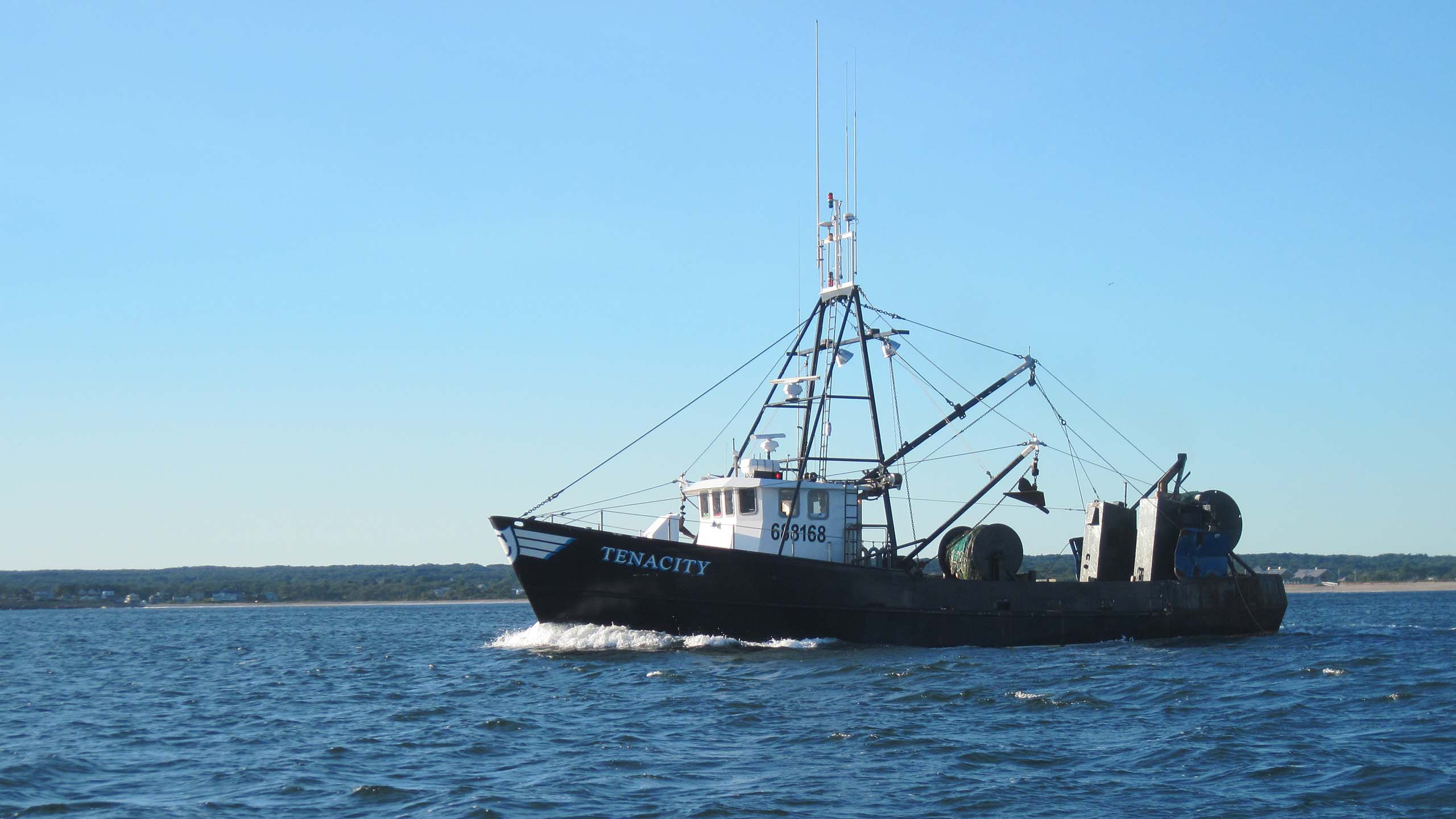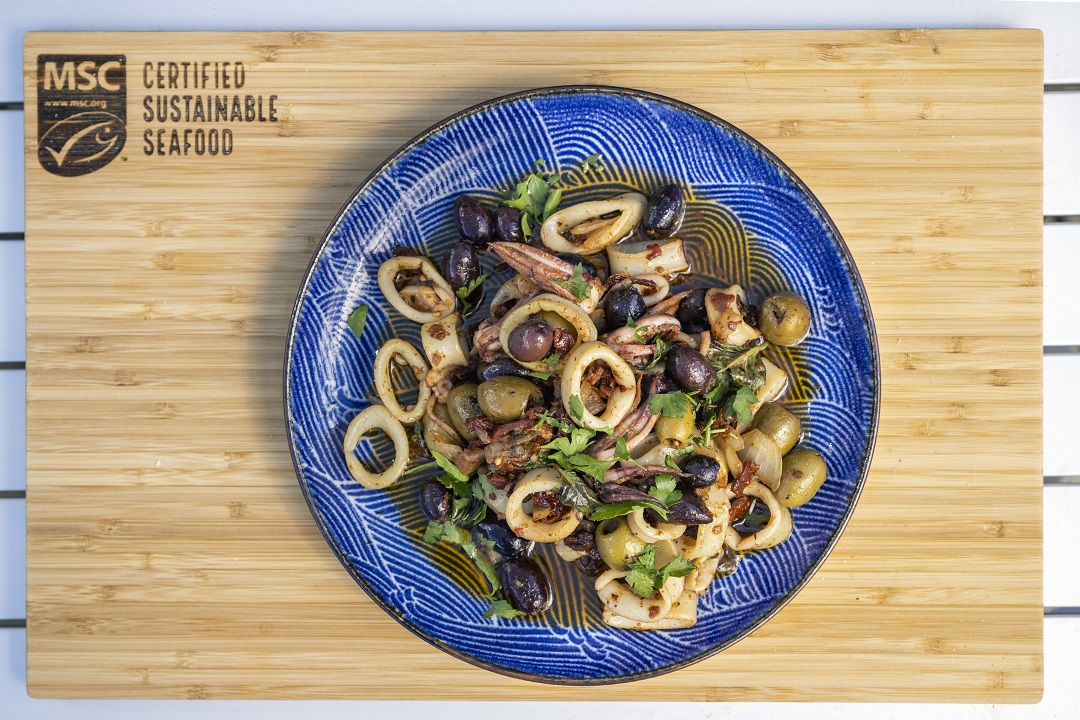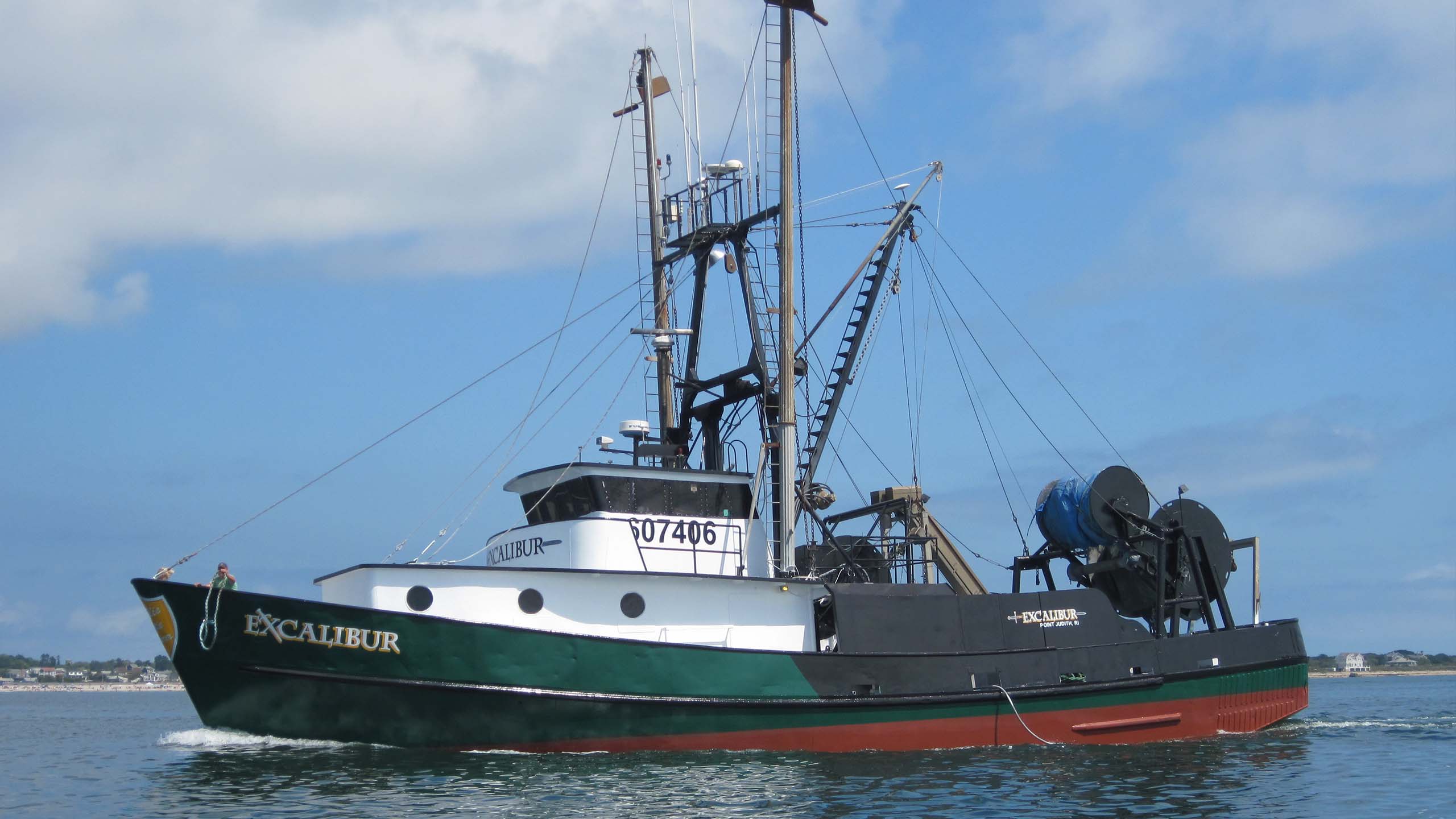“If we don't have sustainable fisheries, we can't sustain our business.”
In 1954, Fred Lund and his son Warren founded Lund’s Fisheries to provide a market for Cape May, New Jersey fishermen, like Captain Wayne Halbruner, to sell their catches of fluke, scup, butterfish, black sea bass, and other fish because it’s what nature offered and they recognized the opportunity to maximize the value of what they caught for their families and their community.
As a teenager, Jeff Reichle, now Lund’s Fisheries’ Chairman, joined the company and within a couple of decades, under his ownership, Lund’s Fisheries’ products could be found in a variety of new markets around the country. When the foreign fishing fleets were forced to leave U.S. waters during the late 1970s, the U.S. ‘Fish and Chips’ policy allowed foreign processing vessels access to purchase fish from local fishermen and provide them with new offshore markets.
In taking advantage of this opportunity, the Cape May squid fishery was born. Squid offered a tremendous opportunity for the family-owned business to diversify their fishery products, and to develop export markets and a path for diversifying the domestic dinner table.
After millions of dollars of investment in shoreside processing and freezing technology over the last several decades, and under the leadership of company President, Wayne Reichle, Jeff’s son, and Captain Halbruner’s grandson, Lund’s had laid the groundwork for the first MSC-certified squid species—U.S. Longfin Inshore Squid (Doryteuthis (Amerigo) pealeii) and Northwest Atlantic Northern Shortfin Squid (Illex illecebrosus).

Sustainability is Family
Sustainability has been at the cornerstone of the Lund’s Fisheries ethos long before achieving MSC certification. The health of the ocean and the health of the family have always been seen as the same.
“If we don't have sustainable fisheries we can't sustain our business,” says Jeff Reichle. “If we didn't have a sustainable fishery, I wouldn't have had a business to pass onto my children, and they wouldn't have a business to pass on to their children. It really all ties into sustainability. We've always believed in that.”
In 2018, Lund’s Fisheries, partnering with The Town Dock in Narragansett, RI, earned the MSC certification for the Longfin fishery, made possible through the rigorous U.S. fishery management system’s commitment to the sustainability of the species and its ecosystem. Just one year later, the companies successfully added the Illex squid fishery, allowing them to offer the only two species of squid in the world to have obtained MSC certification.
The Magic of Squid
Squid live by a set of unique rules that have set them up for longevity as a species. Squid have a short lifespan of about one year and become sexually mature within just six months, with cohorts spawning continuously until they die a natural death.
“Squid have short lives, especially the ones along the U.S. east coast,” says Marin Hawk, Senior Manager for Fishery Partnerships in the US. “They live for about a year, so much of what is not caught will die soon, and because it's such a short-lived species it has a great potential for replenishing itself and contributing to a sustainable fishery.”
Though like any wild species, their numbers can be unpredictable. It is this unpredictable nature that has served as the primary obstacle for squid fisheries becoming MSC-certified for so long. One of the MSC program’s key pillars is that the fishery must prove that the species being caught have a healthy wild population and that enough of the biomass escapes the fishery each year. Because the population of squid is so dependent on environmental factors, calculating the biomass of these wild stocks offers significant challenges.
“The MSC program is based on maximum sustainable yield and fishing around that level,” explains Hawk. “If you don't know the biomass of a fishery, it's very difficult to determine a maximum sustainable yield or allowable catch. So, squid fisheries tend to need a little more guidance and support with how they can meet that aspect of our standard.”
Prospering in Warming Waters
Northwest Atlantic squid are highly migratory and occupy a large range, from Newfoundland to Florida. Due to the small footprint of the domestic fishery, relative to the geographic range of the stock, fishery scientists have determined that these stocks are being lightly exploited. Evidence is also showing that the region is on a path for ocean temperatures to continue rising. Unlike some local species, squid seems to be well-positioned for the shift to a warming ocean. Research has concluded that squid may even benefit from rising temperatures.
“In some fisheries, more squid hatch when the water is warmer so there is more potential squid to be caught each year as the water warms,” says Hawk. “MSC has gotten more involved in researching and identifying the impact climate change will have on fisheries. Squid is one that may benefit [from rising ocean temperatures], but many fisheries will not.”
Squid at Home
Squid consumption in North America has a long way to go to get beyond the fried rings and tentacles of calamari found in local restaurants. Sure, it is one thing to understand that squid is healthy and delicious, but what is often overlooked is how easy it is to prepare at home.
“Squid is extremely versatile and easy to cook,” says Hawk. “What I like to do is buy some frozen squid, defrost it in the fridge, put a little bit of olive oil in the pan, and then any flavorings that you put with that squid are going to allow the squid to taste just like the flavorings you put in. I've even seen some chefs use the squid as a noodle to replace pasta, which is a very healthy alternative.”

A seat at the table
Impassioned by maintaining healthy oceans for many generations to come, the team at Lund’s Fisheries is on a constant quest for acquiring more knowledge in their area of expertise and are considering expanding their MSC certifications to other locally harvested and processed species.
“There's a lot of distrust of fishermen and the fishing industry, but these MSC certifications really help us demonstrate to the world that we are walking the walk,” says Jeff Kaelin, director of sustainability and government affairs at Lund’s Fisheries. “If we don't have sustainable fisheries, we don't have a future.”
“The vision, the business acumen, the drive, and hard work from these families that originated this business, it's likely impossible to try and recreate under the current business climate,” explains Greg DiDomenico, also responsible for sustainability projects and government relations at Lund’s. “The number of people that have come in and out of Lund’s and created a life for themselves—just the amount of people that have been working here for 20, 30, 40 years—that doesn't occur anymore, and it happens to be the case at Lund’s for obvious reasons.”
Being the Nation’s first Ocean Resort, Cape May, New Jersey has very few businesses offering year-round jobs, and Lund’s Fisheries is one of them. The team will tell you that their MSC certification doesn’t directly change how they do business since they’ve always been operating as sustainably as possible.
What they will also tell you is that achieving these certifications does change the way that these fisheries are perceived in both domestic and international markets, and also serves as a constant reminder to each of their employees to meet their company’s responsibility of ensuring that they are utilizing the oceans in a way that allows countless future generations to enjoy the bounty that nature has to offer.

